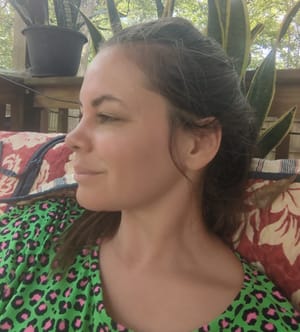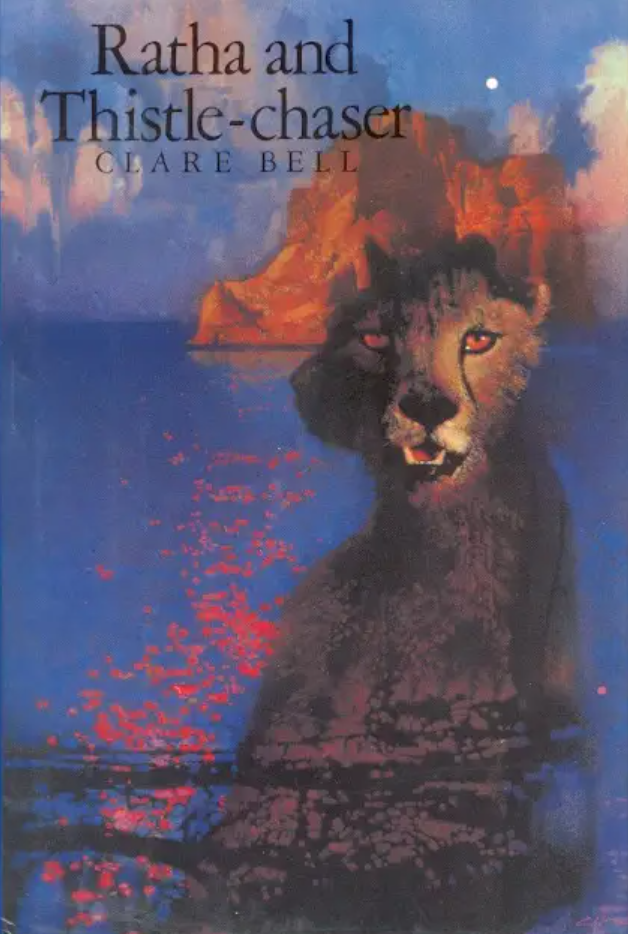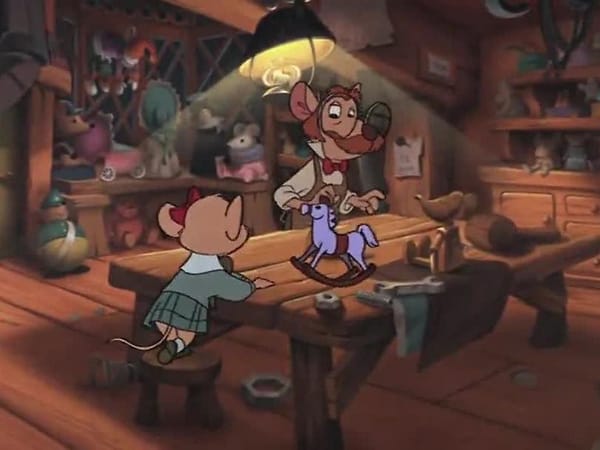Once I got curious enough to accept that the major psychological task for women is to develop a sense of your own masculine instead of just leveraging the energy around men, I went looking for some good examples that seemed like a natural fit for who I am.
Mowgli's not really a King, but he's definitely a big part of me. He's half-wild, learns from his teachers and is able to speak politely (well, sometimes) to all the different People in the forest. He lives on the outskirts of humanity to a degree that I'd like to change for myself.
Kirikou, on the other hand, I classify as part of the image of my inner King. He's small, but he keeps a level head and solves problems creatively. He doesn't let the histrionics of his village keep him from moving forward. He's connected to the animals and to the earth.
"Anyone who can speak from inside his mother can bring himself into the world."
He doesn't buy the scary stories around Karaba the sorceress, who likes to ruin crops and take the gold from the village women. He asks questions.
Kirikou rules. I feel lucky to have encountered him as a character.
Three Kings (1999) is another go-to. These guys drop the gold and pick up the children. I've used this example many times as I cut my way through all possible decisions I could make about what kind of career to pursue and where to apply my life force. I'm moved by the truth I feel at the heart of this movie.
There were two Madeleine L'Engle novels that stayed with me throughout my life – one is A Ring of Endless Light, which I guess I'll talk about later since I'm mentioning it now, and the other is And Both Were Young.
I was feeling crippled and without support when this story returned to me. Flip is sent, unhappily, to a boarding school in Switzerland by her stepmother-to-be. She's lonely and has a hard time fitting in with the other girls. She's physically clumsy and only really gets along with an art teacher who she treasures. She makes friends with a boy in a nearby chateau who has a sad and mysterious past.
This story was part of some inner medicine I had taken in when I read it as a child. So I looked more closely – what does Flip do in the story to aid her own growth?
She practices skiing every day, where nobody can see, so she's able to have more of the skills that allow her to fit in socially and to build confidence. Flip takes it to heart when her art teacher – who she knows cares about her – tells her she's got to snap out of it. She makes more effort to get along with the others. She just keeps showing up instead of retreating into herself, and is transformed by doing so.
At the time, I translated this into learning to skateboard (practicing a physical activity) and not giving up on some goals I'd established; returning to them every day.
And Both Were Young is a story about the feminine herself in maturation. There are varying opinions about if the nature of Self (the archetype of wholeness) is inherently feminine or not, but for someone who loves to play with stories, it makes sense to me that I live in a Queendom and I look for stories that support that kind of development. It's just a framework, but it helped me connect to things I loved.
I was talking with my friend Matthew yesterday about Seven Years in Tibet (1997). Brad Pitt plays Brad Pitt playing mountaineer Heinrich Harrer (yeah, you read that right) and this is a long story about the masculine (in many different forms – governments as well as characters) being super out of whack.
Brad Pitt playing Brad Pitt playing Heinrich Harrer is close to an opposite of Kirikou – lying to the men on his team to bolster his own goal-oriented ego, he endangers everyone. The cultures around him reflect this kind of obsession with perfection. The seamstress shows up in these stories to create a new identity for the men.
Brad Pitt playing Brad Pitt playing Heinrich Harrer comes back into whack through a connection to the child self. His inner transformation is expressed at the end through a change in physical posture, a humility and openness, in his relationship to his own child.
It's a shift that values life because it is now relating to the feminine in a different way.
I am really inspired by Kim Wolhuter as example of someone connected to the feminine in himself and through his relationship with nature.
He spends most of his time in the wild, carries no weapon, wears no shoes, develops long-term, intimate relationships with wildlife (including hyenas and cheetahs), and he stays alert and open enough to do so, which requires the standpoint of the masculine.
He tells their stories accurately and appropriately while avoiding the human sensationalism that made modern nature filmmaking so tough to watch.
I also looked at Three Kings (1999) as an example. These soldiers set out to get some Kuwaiti gold, and their values change when they see the human cost around them. What does a real king do? A real king drops the gold, and picks up the people.




Member discussion